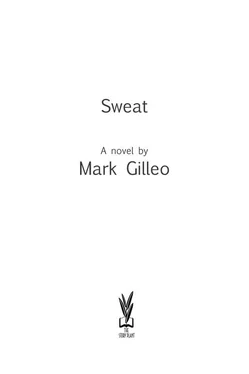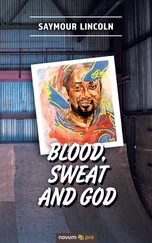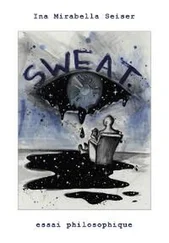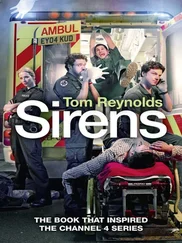He sipped his bourbon, read the paper, and opened his mail with CNN on in the background. He looked at the last piece of mail in his hands, an eight by eleven inch envelope with no return address. His full name and title was written in impeccable penmanship across the front.
He reached for his letter opener; a gold-plated blade with a bald eagle mounted on the end, and cut the top off the envelope. The neatly typed letter was short and to the point. It was also completely unnecessary. The photographs told him all he needed to know. A nice shot of his hand on the upper thigh of a beautiful Asian woman in the quiet corner of a classy restaurant. Another picture of the senator leaving the restaurant, his hand on his female companion’s ass.
The rules were clear. The price for silence was one hundred thousand dollars.
Senator Day picked up the phone.
From a mobile bed on the fifth floor of George Washington Hospital, the senator’s chief-of-staff tugged at the cord of the wall-mounted phone. His swollen knee screamed with pain. A tube ran from the IV stand to a vein in the crook of his right arm. The skin was raw, irritated. The adhesive used to keep the needle in place was a constant source of annoyance. Even more annoying was being out of the political loop, away from the schmoozing necessary to get things done. He had been in the hospital for over a week, and it was now nearly three since he had felt his ACL snap, an out-of-control water ski twisting his leg to an unnatural angle.
“Scott? How’s the knee?”
“Senator… The knee is fine, as long as I don’t move and the Oxycontin bottle still rattles when I shake it. The staph infection, well, that’s a different story.”
“Jesus.”
“He hasn’t been listening,” Scott replied, trying to lighten the mood.
“Any word on when you’ll be released?”
“Not yet. MRSA is a bit of a wild card. At least the doctors have stopped talking about the possibility of losing the leg.”
“I’ll take that as good news.”
“My leg seems to think so.”
The senator paused and then continued. “Business question for you. What do you know about international wire transfers?”
Scott took a pensive breath. “Wire transfers? From what angle? Got a bill in the works I haven’t heard about? The legislative director hasn’t mentioned anything.”
“No, it’s of a more personal nature. Hypothetically speaking, is it possible to do an anonymous wire transfer?”
“How hypothetical are we talking?”
“A hundred grand of hypothetical.”
Scott sat up in his bed and grimaced. “Well, the current statute flags the IRS for any wire transfer over ten thousand dollars. Meaning that if you wire an amount ten grand or over, you have to fill out paperwork that goes to the IRS. In theory, anyway.”
“So if you wanted to do a wire transfer without notifying the IRS, you could send, say, nine thousand nine hundred ninety-nine?”
“They call that smurfing. It was a practice popularized by drug dealers in the eighties and now used by myriad elements of the regulation-avoiding public. I would stay away from nine thousand nine hundred ninety-nine. It’s an overly suspicious number.”
“So maybe eight grand here, nine grand there.”
“That’s what I would do,” Scott said. “From different accounts.”
The senator considered the advice before his chief aide continued. “There’s another option I can think of.”
“I’m still here.”
“I might know someone in banking who could arrange to do the wire transfer without the paperwork.”
Senator Day thought aloud. “How much would that cost me?”
“Monetarily…nothing. Politically, it would be a debt. We wouldn’t get it for free.”
The senator loved it when his chief-of-staff used the word “we.” As far as he was concerned, it was a term of endearment. Good help was hard to find.
The senator didn’t think long. “Make the call and see what your contact says.”
“I’ll get back to you later this evening.”
“And Scott…keep this quiet. No one finds out. I mean no one. Especially the staff.”
“Yes, sir.”
The senator read the letter and the explicit directions again. He drained his glass, filled another, and tilted the bottom toward the ceiling. Images of former presidential candidate Senator Hart with a blonde on his lap, sitting on a yacht appropriately named Monkey Business , flashed in his mind.
The sound of his wife’s footsteps on the floor above shook him from his momentary daze. He stuffed the pictures into his briefcase and reread the letter. One hundred thousand dollars to a bank account in Hong Kong. For a senator with ambition, a hundred grand seemed like a reasonable sum to pay to keep his career on track. Hiding a six-figure payout to a Hong Kong bank was easy. His wife didn’t keep track of the money. As long as the credit cards weren’t declined at Saks Fifth Avenue and the checks didn’t bounce, she would never notice. Calming the sea of revenge brewing in the senator’s head was more difficult. He would pay the money, and then he would see to it that the owner of the bank account in Hong Kong understood that John Day was not a person who could be squeezed without repercussions. He was a senator, a Harvard Man, and a member of one of the most influential families in the history of the Northeast. He had power, wanted more, and nothing was going to stand in the way of his ambitious plan to one day reside at 1600 Pennsylvania Avenue.
Chapter 3
Jake got out of his car and eyed the mailbox at the end of the driveway. It was only a ten second walk across a small patch of grass that masqueraded as a front lawn, but it was a trip that was growing more painful by the day. Jake reached the end of the yard, shoved his hand in the standard issue black box with its red flag, and pulled out the day’s torment. He carried the thick stack of mail across the grass, past the “For Sale” sign that he and the real estate agent had pushed into the soft ground a week ago, and up the four stairs of the front porch.
The days were numbered for the house where he had grown up. The sadness he felt added to the burden he now faced. For the majority of his life the house had been a source of good memories—the normal stuff of childhood and the teenage years. Birthday parties, holiday gatherings, pictures on prom night. He got his first kiss on the very porch where he now stood, the same porch where his mother had sat him down and broke the news of her cancer.
He fumbled for the key to the deadbolt, balancing the stack of mail in the crook of one elbow. He stepped across the threshold of the foyer, threw his wallet and keys on the small table resting at the foot of the stairs, and made his way through the living room. The mail went on the coffee table, next to the disaster area of bills that already waited for his attention.
He changed clothes in the laundry room off the back of the house, grabbed the last beer bottle from the fridge, and made his way to the sofa. He sipped the cold suds and stared at the pile of mail.
The stack of envelopes stared back.
His mother’s medical treatment, which ultimately failed, had cost a fortune. It was a fortune she didn’t have. Health insurance covered the initial diagnosis and treatment, but when she reached the maximum lifetime limit of the policy, the debt outpaced the ability to pay by roughly the speed of light. When the house sold, if it sold, it would bring in enough money to cover almost half her debt. The rest was unrecoverable. It was a deal his mother had agreed to, giving up everything she had worked for in exchange for more time with the only thing that mattered. The collectors were already on the hunt, and Jake hadn’t answered the home phone in three days.
Читать дальше












